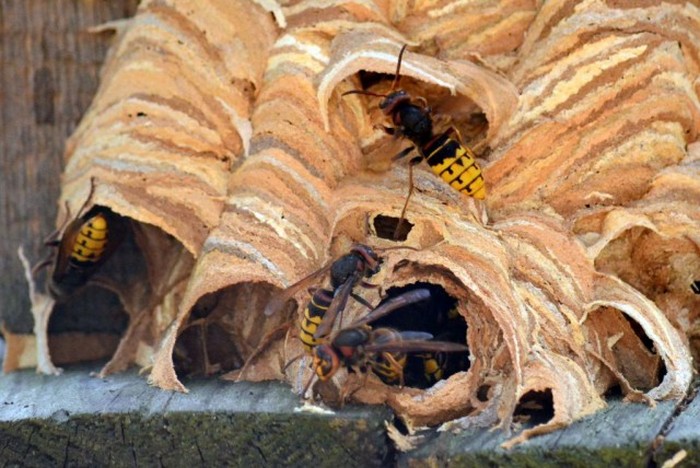|
|
Hornet Nest
|
Hornets have stings used to kill prey and defend hives. Hornet stings are more painful to humans than typical wasp stings because hornet venom contains a large amount (pkp,5%) of acetylcholine. Individual hornets can sting repeatedly; unlike honey bees, hornets and wasps do not die after stinging because their stingers are not barbed and are not pulled out of their bodies.
The toxicity of hornet stings varies according to hornet species; some deliver just a typical insect sting, while others are among the most venomous known insects. Single hornet stings are not in themselves fatal, except sometimes to allergic victims. Multiple stings by non-European hornets may be fatal because of highly toxic species-specific components of their venom.
The stings of the Asian giant hornet (Vespa mandarinia) are the most venomous known, and are thought to cause 30-50 human deaths annually in Japan and 42 in China in July-September 2013 alone. Non-queens being 1.4-1.5 inches in length, the Asian giant hornet's venom can cause allergic reactions and multiple organ failure leading to death, though dialysis can be used to remove the toxins from the bloodstream.
People who are allergic to wasp venom are also allergic to hornet stings. Allergic reactions are commonly treated with epinephrine (adrenaline) injection using a device such as an epinephrine autoinjector, with prompt follow-up treatment in a hospital. In severe cases, allergic individuals may go into anaphylactic shock and die unless treated promptly.
|
|









